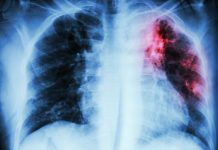What is ultra-processed food, what does healthcare research say about its relationship to obesity, and how can we change our diet and eat more healthily?
What is ultra-processed food?
Ultra-processed foods are foods which have been altered in some way to make them highly palatable and often to help preserve them for longer periods. Processed foods are not whole foods – they are cheap foods which have been industrially manipulated to give a high-energy product mixed with additives.
In terms of feeding the world, ultra-processed foods tick the box as they are relatively inexpensive, have a long shelf life, and they do provide some important nutrients. However, the rise in the intake of ultra-processed foods mirrors the global rise in obesity and type-2 diabetes.
Nutritionists are alarmed that ultra-processed foods seem to be fuelling the trend for overeating, causing pathological eating behaviour. These types of foods impair the gut-brain axis and disrupt our normal satiety cues.
Here’s a list of ultra-processed foods – ham, bacon, salami, processed meat, meat pies, ready meals, takeaways, fast food, fried food, chips, pizza, ice cream, cakes, biscuits, pastries, doughnuts, shop-bought bread, chocolate, desserts and salted snacks. The list is not exhaustive – anything you can think of that’s canned, bottled, salted or fried is to some extent processed.
You might think what you are eating is healthy – but for example, plant milk such as oat milk and shop-bought muesli, are processed foods. Not all processed food is unhealthy – and some are healthier than others.
What does the research say about ultra-processed food and obesity?
In a recent 2021 study using data from the UK Biobank, those with the highest consumption of ultra-processed food had the highest risk of obesity.
The study included over 22,000 participants aged 40-69 were included for statistical analysis, which included dietary recall, and BMI and waist circumference measurements. The highest ultra-processed food intake was associated with a 79% increased risk of obesity and a 30% increased risk of visceral (abdominal) obesity.
Why should this be? The authors had the following suggestions:
Ultra-processed food is obesogenic
Nutritionists believe that ultra-processed food is obesogenic. In a 2019 two-week crossover study, each group ate a diet matched for macronutrients, calories, sugar, fat and fibre, but for one group the diet was made up of ultra-processed foods. Each person could eat as much as they liked.
The results showed that those on the ultra-processed diet, ate approximately 500 calories per day more than the other group, with significantly more fat and sugar. On average participants gained 0.9 kg when on the ultra-processed diet and lost 0.9 kg when on the unprocessed diet.
The authors noted that those on the ultra-processed diet ate faster, perhaps because the food was easier to eat, as it tended to be softer and easier to chew and swallow, and satiety cues were reduced. It was also more expensive than eating unprocessed food.
Ultra-processed food disrupts the hormonal control of appetite
On the unprocessed food diet, there was an increase in PYY (pancreatic peptide) which regulates appetite and reduces food intake, and a reduction in ghrelin, a gut hormone associated with hunger that makes you want to eat.
On the ultra-processed food, investigators found favourable changes in cholesterol profile but no effect on insulin sensitivity and glucose metabolism, although the study period was short at only 2 weeks.
Ultra-processed food causes a larger glycaemic response
Other research has shown that ultra-processed food induces a larger glycaemic response than unprocessed food. In a 2016 study, the satiety and glycaemic response were measured in those eating (1) raw and minimally processed foods; (2) processed foods; and (3) ultra-processed foods. The results showed that the more the food is processed, the larger the glycaemic response and the lower the satiety effect. Ultra-processed foods may have a deleterious effect on the gut microbiome which increases obesity and inflammation.
Food additives in ultra-processed foods
Cosmetic agents are added to ultra-processed food to make them highly palatable. These include flavourings, colouring agents, thickeners, sweeteners, foaming agents, emulsifiers, bulking and gelling agents. Some of these have been shown to be associated with obesity. For example –
- Monosodium glutamate may function as an endocrine disruptor, interfering with the normal hormonal mechanism of glucagon-like peptide 1 (GLP-1) to stimulate insulin secretion and reduce glucagon secretion after eating.
- Emulsifiers commonly added to food include carboxymethylcellulose and polysorbate-80 which have been shown to cause inflammation and obesity/metabolic syndrome in mice, thought to be due to changes that occur in the microbiome.
- Artificial sweeteners have been shown to increase insulin secretion as reactive oxygen species (ROS) produced from oxidation directly cause the release of insulin, which can increase insulin resistance.
Endocrine disruptors in plastic may cause obesity
Ultra-processed foods are often wrapped in plastic that contains bisphenol A which has been shown to be an endocrine disruptor. It is thought to leach into food, and once ingested, it binds to estrogen receptors, inhibiting the release of adiponectin. Adiponectin plays a major role in fat and glucose metabolism. Levels of adiponectin are lower in those with obesity.
How can we change our diet and eat more healthily?
- Cook from scratch
- Choose your ingredients, incorporating raw protein, fresh fruit and vegetables with whole grains and healthy fats. Avoid ready meals or any prepared food as much as you can.
- Use fresh ingredients
- Eat fresh, locally grown produce whenever you can. Make sure you get your 5 – some would now say 10 – a day. Wash carefully but leave the skin on when possible as the skins are often high in fibre. (It’s fine to eat frozen and canned fruit and vegetables as these are minimally processed so long as they don’t contain added salt or sugar.)
- Read food labels
- Reading the food labels means you know what you are eating. Look for green and amber foods, avoid the red. Look for No Added Sugar and Low Salt options. Try and avoid foods that contain food additives such as emulsifiers, thickening agents, monosodium glutamate and artificial sweeteners.
- Avoid unhealthy foods
- It’s quite possible to cook your own ‘Fakeaways’ – meaning you can eat the foods you love but make a healthy option instead. Try and stop eating fats and convenience foods and make time to enjoy cooking and creating much healthier, delicious alternatives.
Final thoughts
Before you throw all those well-loved foods into your shopping trolley, take some time to reconsider. There’s plenty of evidence that ultra-processed foods affect the hormonal control of our food intake and appetite, and impair the normal gut-brain satiety cues, and that this has poor consequences for our health.
Easy, convenience food is not the answer to living a happy, healthy long life. If we all put more effort into thinking about our diet and making time to create and eat regular healthy meals, this would be so much better for our health.
- Which ultra-processed foods can you ditch from your diet?
- What changes can you make, starting today, for a healthier you?
For more information
- British Heart Foundation – Ultra-processed foods: How bad are they for your health?
- NHS – Eating processed food
This piece was written and provided by Dr Deborah Lee, Dr Fox Online Pharmacy











